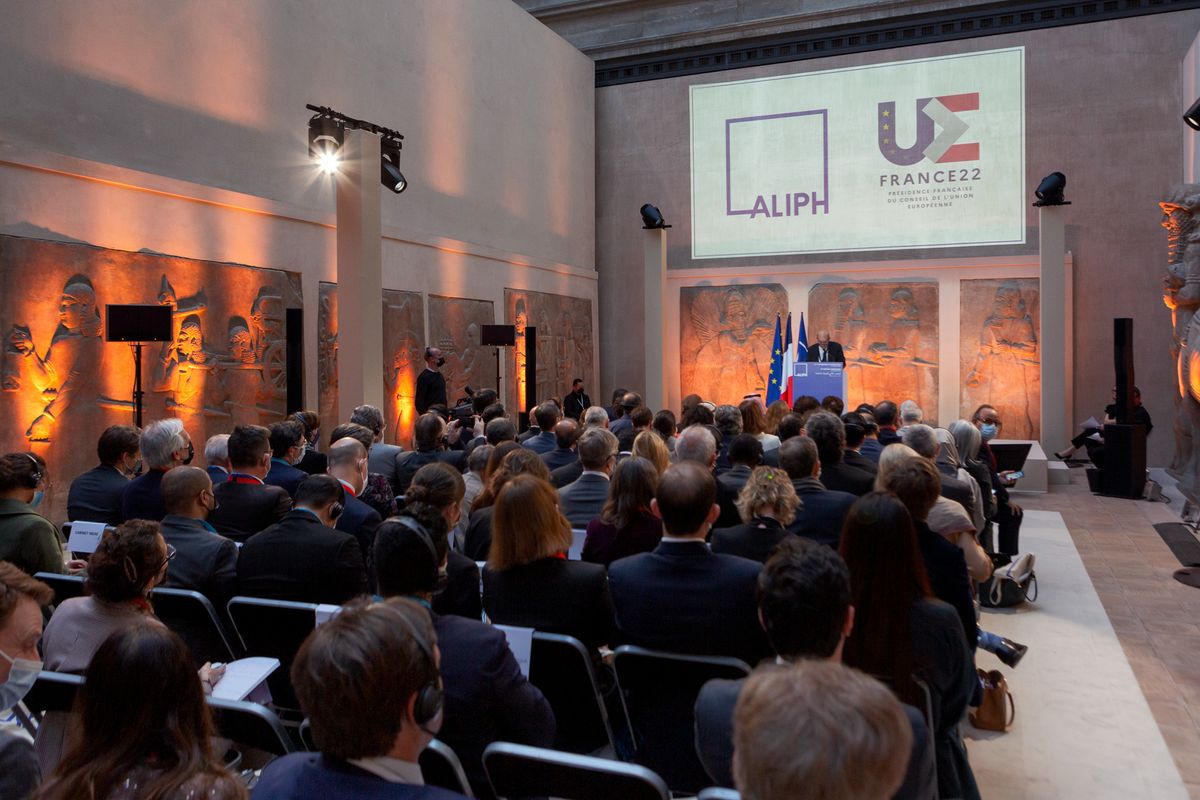The Geneva-based global fund Aliph, founded to protect cultural heritage in conflict and post-conflict zones, has announced $90m in funding for future projects. The amount—which includes $30m from the Saudi Arabian government—was pledged at a conference at the Louvre in Paris attended by delegates from 30 countries, heritage organisations such as Unesco and private donors.
Aliph is funded by seven governments—including France, Saudi Arabia and China—along with private donors (the Andrew Mellon Foundation and two philanthropists, Kaplan, and the Swiss businessman Jean-Claude Gandur). The TotalEnergies Foundation, the philanthropic arm of the French oil and gas company, has also come on board.
“During this second conference, nearly $90m was pledged, supersceding the $77.5m that was committed during the first donors’ conference in March 2017,” an Aliph statement says. “Aliph is the pursuit of a new kind of multilateralism of action and results, agile and responsive, directly in the field,” said Jean-Yves Le Drian, the French Minister of Europe and Foreign Affairs, in a statement.
Originally proposed at an international conference held in December 2016 under the auspices of the G7 in Abu Dhabi, the International Alliance for the Protection of Heritage in Conflict Areas (Aliph) was registered on 3 March 2017 in Geneva. The fund, named after the first letter of the Arabic alphabet, is led by a 16-member board chaired by the US billionaire Thomas Kaplan. Its non-voting members include Jean-Luc Martinez, the former director of the Louvre in Paris.
Aliph has supported 150 projects in 26 countries. Its initiatives include safeguarding the Minaret of Jam in Afghanistan after repeated attacks on the monument by the Taliban. The organisation also donated $85,000 to help rebuild the Raqqa Museum in northeast Syria and $900,000 for the digitisation and enhancement of Iraq’s written heritage, helping to preserve the rare manuscript collections held by several libraries, including the Syro-Chaldean library of the Monastery of Our Lady of the Seeds, and the two main libraries of Mosul.


